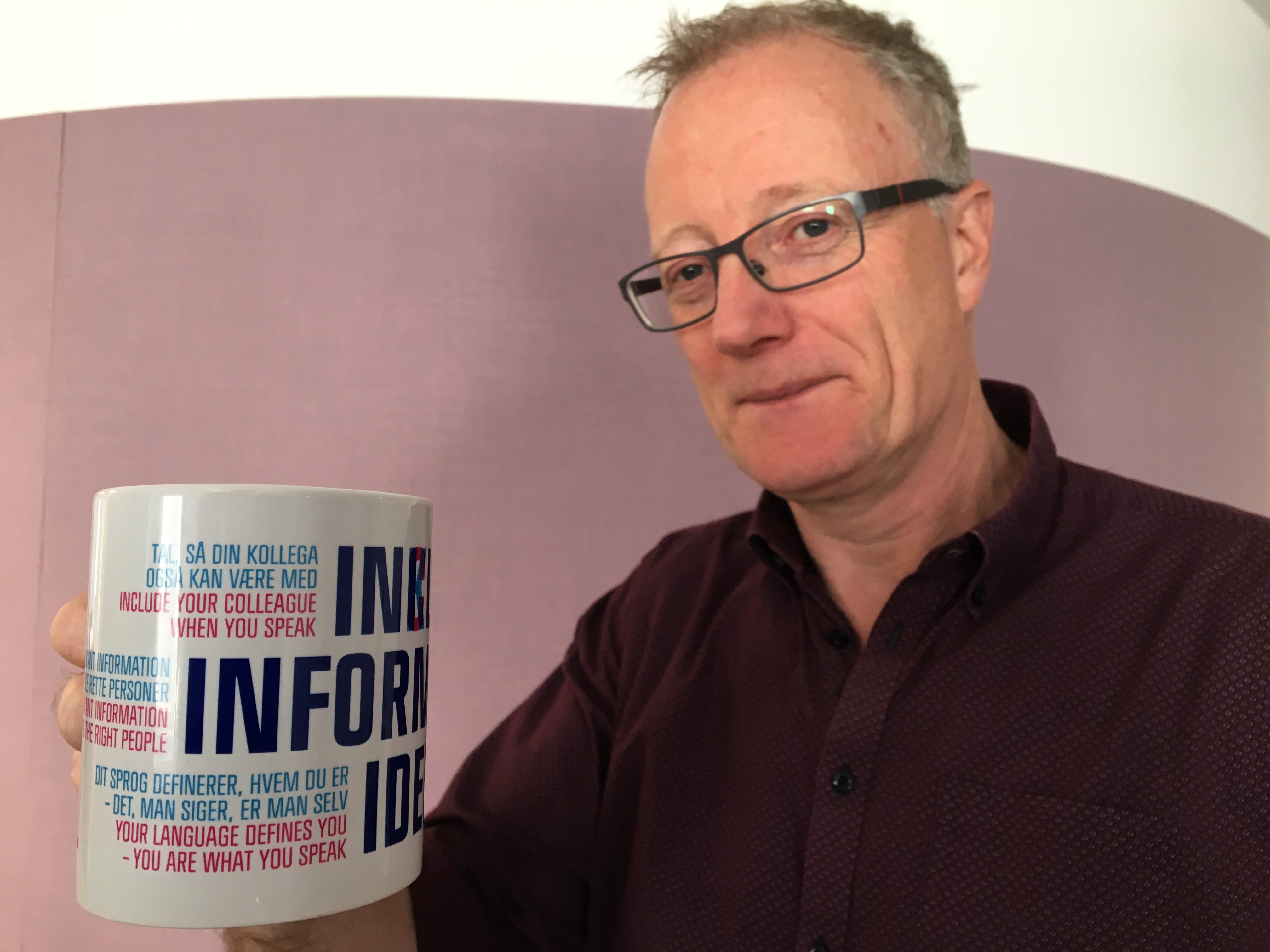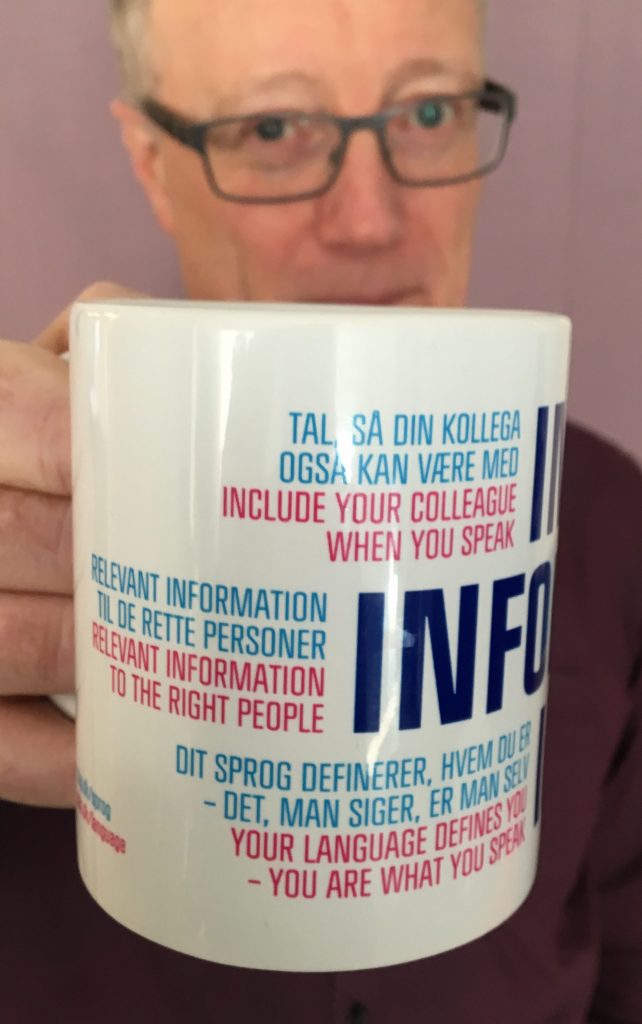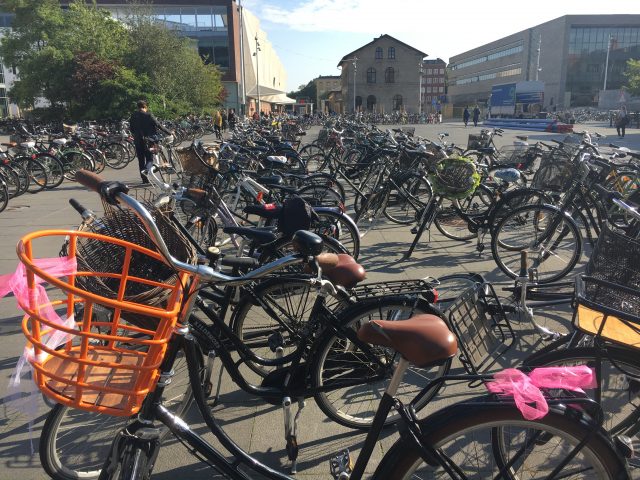Why do we speak English in a Danish university?

Alex Klinge, Associate Professor at the Department of Management, Society and Communication, is spearheading a language awareness campaign at CBS. (Photo: David Fulop)
There is a constant struggle with the language barriers that spring up between Danish and international researchers, staff, and students. Now, CBS is promoting inclusion, information, and identity. The end goal… action!
Have you ever received any mail from CBS in Danish even though you are not Danish?
Have you ever felt awkward or excluded from a conversation?
Have you ever been uncertain whether you should switch to English when an English-speaking colleague suddenly shows up in the middle of your conversation?
That is why Alex Klinge, the Equal Opportunities Officer at CBS and Associate Professor at the Department of Management, Society and Communication is spearheading a language awareness campaign at CBS together with Marie Pade Andersen and Katrine Rask Andersen from CBS Communications.
Danish and English should be seen as parallel or complementary corporate languages.
Alex Klinge, Associate Professor at CBS
According to Alex Klinge, CBS has made previous attempts at addressing the language issues, but they were not adopted and implemented in the end. This time, the team wants to undertake the task using a different approach.
When addressing the previous attempts made by CBS, Alex Klinge says:
“Let’s not formulate a top-down complex policy, let’s do something that will change the communication culture of the organization instead. If you do this as a top-down policy, it will end up in a top drawer somewhere and nothing will change.”
In stark contrast to the top-down approach, Alex Klinge is now promoting language awareness by addressing the problems and solutions under the headings of inclusion, information, and identity. If you have not met him and his team yet, you can expect to sometime in the near future.
The end goal of the campaign is to bridge the gap between the two languages. That is why employees at CBS are now given the opportunity to take the initiative by learning Danish or English, classes paid for by CBS.
Because as Alex Klinge would say, “action speaks louder than awareness.”
Why have english at all?
CBS is a Danish university embedded in Danish culture. This means that the school’s connection with most of the outside world will primarily be in Danish. But CBS is also an international university with more than 40 percent international academic staff, which means that much of the communication also has to be in English.
However, Alex Klinge says, “Danish and English should be seen as parallel or complementary corporate languages. We need to think about the vision involved in knowledge creation and research across borders and boundaries.”

Have you ever felt awkward or excluded from a conversation? (Photo: David Fulop)
When reflecting upon CBS’ vision, Alex Klinge points out that, “our students will end up in an internationalized business community, so we need to have represented, on the factory floor, an international body of the faculty.”
He continues to say, “the only way we can do that and the only way we can hold on to good international faculty is if we operate in an environment where they have an equal opportunity. So, that would then involve English.”
Action speaks louder than awareness.
Alex Klinge, Associate Professor at CBS
underlying challenges
It is easy to assume that the language barriers are unique only to internationals at CBS and that the Danes are unaffected. But the truth is that the problem goes both ways. Alex Klinge and his team broke down the challenges into three parts: inclusion, information, and identity.
Sometimes Danes are being judged for not switching to English when conversing among their peers. This can result in some internationals feeling excluded, making it more difficult to engage and generate equal opportunities at work.
Another challenge that the Language Awareness Campaign is aiming to resolve issues concerning the simultaneous sharing of information in English and Danish. There have been cases at CBS where important emails were sent only in Danish, resulting in international staff not getting the same information as their Danish counterparts.
Professional or academic identity is the third language-based problem that the Language Awareness Campaign is addressing. Peers who communicate with imperfect English or Danish are subconsciously thought of as, or believe themselves to be, less professional or competent.
But despite having difficulties communicating in a second language, a perfect professional most likely lies underneath the imperfect level of a spoken language.


































































































































Comments